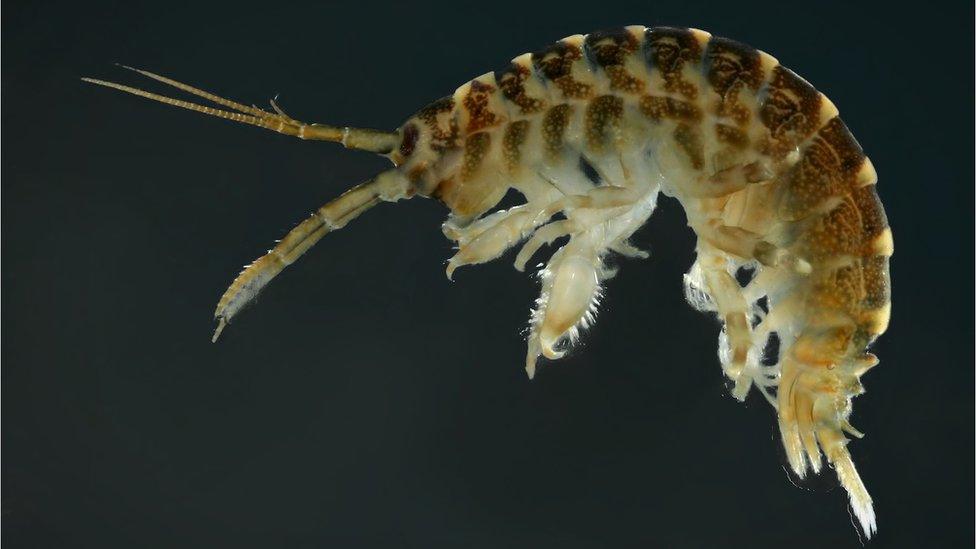'Fear' of killer shrimp may threaten rivers
- Published

An invasive "killer shrimp" that has reached UK rivers could be altering the behaviour of other species through fear alone.
A study shows that the mere presence of the "alien" crustacean can make other species less effective at the tasks they perform in aquatic ecosystems.
The invasive animal preys on an array of species, including other shrimp, damsel flies and water boatmen.
It has been linked to local extinctions in other countries.
The new research was carried out by independent consultant Calum MacNeil and University of Plymouth professor of animal behaviour Mark Briffa.
It shows that the mere presence of the predator can prevent other species from carrying out core ecosystem functions such as shredding fallen leaf litter into smaller particles so that it can be consumed by other species.
The prey species expend more energy in simply avoiding the "killer shrimp" - or to use its formal name, Dikerogammarus villosus - rather than focusing on behaviours they would exhibit in its absence.
Indirect impact
For the study, one of three different shrimp species belonging to the genus Gammarus (all commonly found in European rivers) were placed inside a tank. In half of the tanks, a sample of D. villosus was also placed inside a cage.
The behaviour of the Gammarus shrimp was then assessed over the space of several days, with researchers measuring to what extent they shredded leaves as they would be expected to.
The results showed that after four days, each Gammarus species showed lower shredding efficiency in the presence of the caged "killer shrimp" compared to those in tanks where it was absent.
"This study demonstrates an unappreciated and indirect impact of a biological invasion by a voracious predator," said Dr MacNeil.
"It shows that the mere presence of an invader can influence resident prey behaviour, in this case the feeding efficiency of naĆÆve residents."
Dr MacNeil added: "The Gammarus in our experiment had no prior exposure to its predatory rival, and would not have known to respond to specific alarm cues.
"However, none of our samples showed any evidence of habituation during the course of the experiment - in fact quite the opposite."
The work is published in the scientific journal Acta Oecologica.